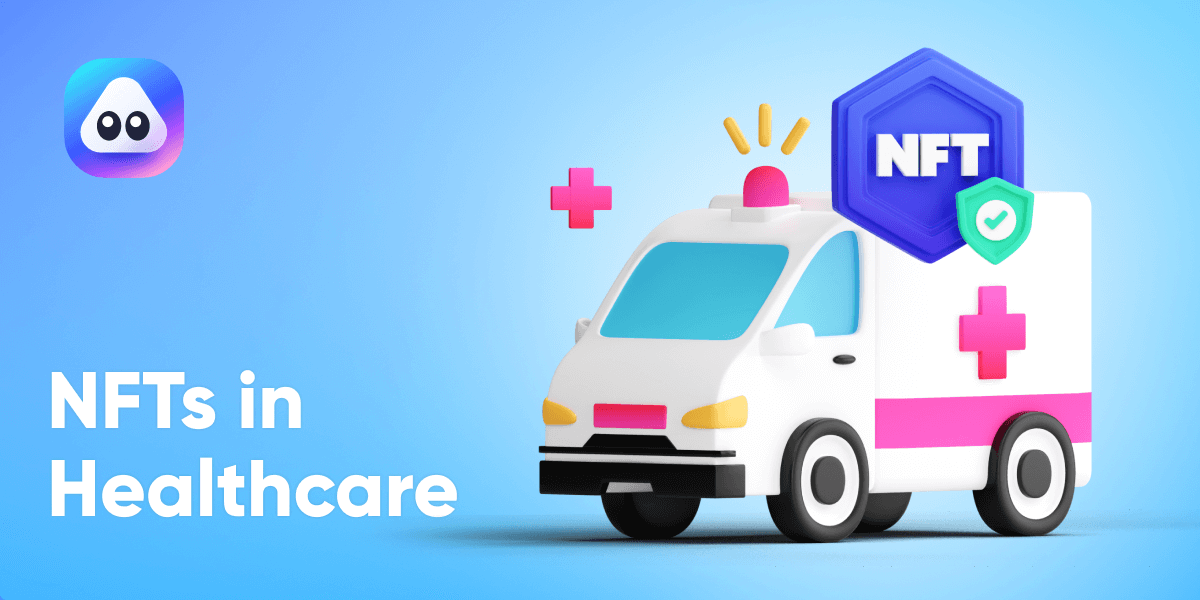The Role of NFTs in Healthcare
Can Non-fungible tokens (NFTs) be used in healthcare? Here`s how.
January 4, 2023

The healthcare industry has been forced into a state of constant, rapid innovation, no thanks to the pandemic. Frontline researchers have kept exploring new dawns in the hopes of evolving from the remains of the covid impact. Asides from the esoteric clinical and laboratory trials, several areas in medical science need to be improved to enhance healthcare delivery. Let's look at some examples of where NFTs in healthcare can work.
A closer look at the roles of NFTs in the Healthcare field
1. NFTs and Medical Records Keeping
The most important thing in the healthcare industry is keeping accurate and up-to-date records. This is especially true for medical records, which must be comprehensive and easily accessible to provide the best possible care for patients. Imagine being on vacation in another country and getting over a health-related challenge because your medical records can be easily accessed as NFTs on the blockchain. Or have a quick medical intervention because your medical records have been input into the blockchain from the outset.
Using NFTs in healthcare could revolutionize operations, especially in telemedicine, making it easier for doctors and other healthcare professionals to access the information they need and give quick yet accurate treatment without repeating diagnoses.
2. NFTs and Medical Data Ownership
In the age of big data, data ownership has become a hot topic. From social media platforms collecting our data to companies using our genomic information, we are losing control of our personal information. NFTs solve this problem by protecting patients’ sensitive information and improving privacy and security.
The NFT’s advantage of uniqueness and non-fungibility makes them perfect for storing sensitive and personal data like genomic information. Tokenizing data means individuals can be sure that their data is secure and only accessible to those they trust. Also, NFTs allow individuals to monetize their genomic data. For example, they could sell access to their NFT to research organizations or companies developing new treatments using an NFT marketplace. In this way, NFTs could help people profit from their data while maintaining control over it.
3. Medical Equipment
Recently, there has been increasing interest in tokenizing medical equipment, especially in third-world countries. Creating a transparent way to validate the authenticity of the medical equipment — from simple blood sugar devices to complex surgical machines— will improve the existing trust issues in medical practice. This will reduce the preponderance of fake equipment and, consequently, the rate of iatrogenic errors contributing to patient morbidity and mortality.
What’s more, tokenized medical devices can be traded on reputable NFT marketplaces such as AirNFTs.
4. Management
NFTs in healthcare can also enhance management. As crucial as consultations, clinical, and laboratory research are, sustainability is driven by proper management— of resources, people, inflows, outflows, etc. Asides from safe record-keeping of hospital finances, equipment, aid devices, and medications with their real-time prices can be tokenized. Hospitals can also augment staff identification processes with NFT collections. All of these can help with decision-making and bolster more accommodative policies in the healthcare sector.
Conclusion: Will NFTs in healthcare work?
The improvements we hope to see in the medical industry are possible but will require time and a lot of collaboration between medical and blockchain experts. As healthcare restructuring moves forward it is hoped that NFTs can be explored in the relevant settings.
Check out the blog to catch up on our NFT use case series.
